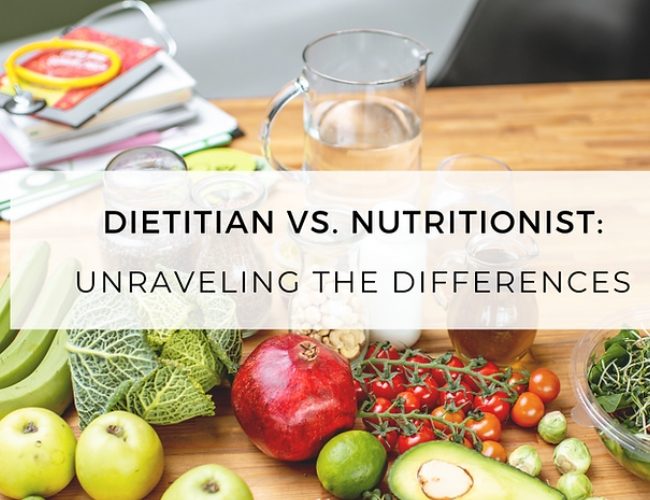Nutritionist vs Dietitian: Which Expert is Right for You?
When it comes to making informed choices about your diet or improving your overall health, you may wonder who to turn to—should you consult a nutritionist or a dietitian? While these two terms are often used interchangeably, they refer to distinct professions with different qualifications and roles. Understanding these differences can help you make the right decision for your health journey. Let’s dive into what separates a nutritionist from a dietitian.
What Is a Nutritionist?
A nutritionist is a professional who focuses on the relationship between food and health, helping people make healthier choices in their everyday diet. They offer general advice about what to eat, but it’s important to note that the term “nutritionist” isn’t strictly regulated in many countries. This means that anyone, regardless of their education or qualifications, can call themselves a nutritionist.
Types of Nutritionists:
- Certified Nutrition Specialist (CNS) – Highly trained with advanced education.
- Holistic Nutritionist – Focuses on natural and holistic approaches to health.
- Health Coach – Helps with lifestyle changes, often including diet.
- Wellness Consultant – Offers advice on overall well-being, including diet and lifestyle.

Education & Credentials
The qualifications of a nutritionist can vary widely. Some may have a degree in nutrition, while others might have completed shorter courses or online certifications. Because the field isn’t regulated uniformly, the quality of advice can differ based on their education and experience.
Conditions Nutritionists Address
A nutritionist typically works with healthy individuals looking to improve their wellness. They provide guidance on:
- Weight management
- General healthy eating
- Sports nutrition
- Dietary supplements
While a nutritionist can guide you in creating a balanced diet and making healthier food choices, they may not be qualified to deal with complex medical conditions.
What Is a Dietitian?
A dietitian is a healthcare professional with extensive training in nutrition science. They are qualified to offer medical nutrition therapy (MNT) and are usually part of a healthcare team, particularly in clinical settings like hospitals or clinics. Unlike the term “nutritionist,” the title dietitian is legally protected and regulated in many countries.
Types of Dietitians:
- Registered Dietitian (RD)
- Registered Dietitian Nutritionist (RDN)
- Clinical Dietitian – Works in hospitals to manage patients’ diets.
- Community Dietitian – Focuses on nutrition education in public health.
- Sports Dietitian – Specializes in nutrition for athletes.

RD vs. RDN
You might see the titles Registered Dietitian (RD) and Registered Dietitian Nutritionist (RDN) used interchangeably. Both require the same education, training, and credentialing. The term RDN was introduced to highlight the expertise dietitians have in the field of nutrition. Whether an individual uses RD or RDN, they are both recognized as qualified professionals in nutrition and diet planning.
Education & Credentials
To become a dietitian, one must:
- Earn a bachelor’s or master’s degree in dietetics or nutrition from an accredited program.
- Complete a supervised practice or internship.
- Pass a national examination.
- Keep up with continuing education requirements.
Most states also require dietitians to be licensed, ensuring they meet specific standards to practice safely.
Conditions Dietitians Address
Dietitians are qualified to treat a range of health conditions through personalized diet plans. They can help manage:
- Diabetes
- Heart disease
- Eating disorders
- Digestive disorders
- Food allergies
Unlike nutritionists, dietitians are trained to provide specialized dietary advice for people with medical conditions.
Key Differences Between a Nutritionist and a Dietitian

Now that we’ve broken down the roles of both professionals, let’s look at some of the critical differences between a nutritionist and a dietitian:
Scope of Practice
- Nutritionists typically work with healthy individuals to promote general well-being and lifestyle changes.
- Dietitians, on the other hand, are qualified to work with people who have medical conditions requiring specific dietary interventions.
Regulation and Credentials
- The term dietitian is protected by law and comes with specific education, training, and licensure requirements.
- The term nutritionist is often unregulated, meaning anyone can claim the title, regardless of education or experience.
Education Path
- Dietitians follow a more strict and standard educational path, including clinical training.
- The education for a nutritionist varies and can range from short certifications to advanced degrees.
Workplace
- Dietitians often work in healthcare settings such as hospitals, private clinics, or long-term care facilities.
- Nutritionists might work in wellness centers, gyms, or as private consultants focusing on diet planning for general health.
Should You Consult a Dietitian or a Nutritionist?
When deciding whether to seek advice from a nutritionist or a dietitian, consider your health needs.
- If you are generally healthy and want advice on improving your diet or reaching fitness goals, a nutritionist might be a great fit. Just be sure to verify their credentials.
- If you have a medical condition like diabetes, heart disease, or a food allergy, a dietitian is better equipped to provide the tailored support you need. They can create a specific diet planner to address your health concerns.
Nutritionist vs. Dietitian: Career Choices

If you’re considering a career as a nutritionist or dietitian, the choice depends on your long-term goals and the level of clinical involvement you want.
Nutritionist
- Pros: More flexible career paths, including holistic nutrition or wellness consulting. Often requires less formal education.
- Cons: Less regulated, may have limited earning potential, and a narrower scope of practice compared to dietitians.
Dietitian
- Pros: Highly regulated with broader opportunities, especially in clinical settings. Generally higher earning potential.
- Cons: Requires more extensive education and training, including supervised internships and continuing education.
Salary & Career Outlook in India
In India, the demand for dietitians and nutritionists is steadily increasing, driven by a growing awareness of health and wellness. The salary for these professionals can vary depending on location, experience, and the type of organization they work for.
- Dietitians in hospitals, private clinics, or wellness centers can expect to earn anywhere between INR 3 to 6 lakhs per annum as starting salaries. With experience, this can increase to INR 8 to 12 lakhs or more, especially for those in senior roles or those who manage their own practice.
- Nutritionists working in fitness centers, wellness consulting, or freelance roles typically earn between INR 2.5 to 5 lakhs per annum at the entry level. However, nutritionists with a strong reputation or specialized expertise in areas like sports nutrition or holistic health can see their earnings rise significantly, with experienced professionals earning up to INR 7 to 10 lakhs annually.
Conclusion
Although nutritionists and dietitians both play a vital role in promoting health through food, their qualifications and roles differ significantly. Dietitians undergo more standard education and are qualified to treat medical conditions with tailored diet plans, while nutritionists typically focus on general wellness. Whether you’re choosing between these professions for career purposes or seeking their expertise for your health, understanding the differences can help you make informed decisions.
Whether you’re looking for a diet planner or need help managing a medical condition, knowing whether to consult a nutritionist or a dietitian can guide you on the right path to a healthier lifestyle.
To enhance the expertise of both nutritionists and dietitians, consider using the Fitrofy Smart Diet Planner. Our app provides personalized diet plans and tracking tools that complement their professional recommendations.
With Fitrofy, you can easily manage your nutrition, track progress, and achieve your health goals efficiently. For nutritionists and dietitians, integrating Fitrofy into their practice can streamline client management and improve outcomes, making it a valuable tool for everyone involved.
Prioritize health and well-being with an easy-to-use solution! The Smart Diet Planner supports daily wellness and energy. Discover the benefits of better health habits today.
Download now or reach out at dietitian@smartdietplanner.com |
+91-7037679715 | https://business.fitrofy.com/
